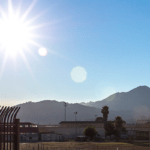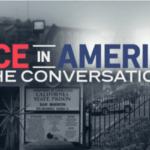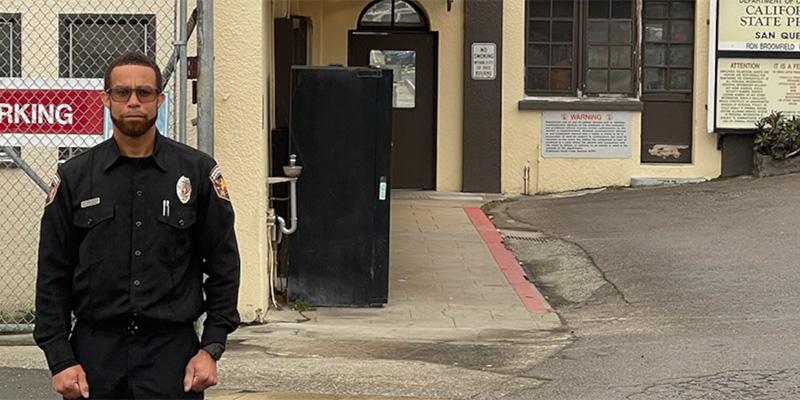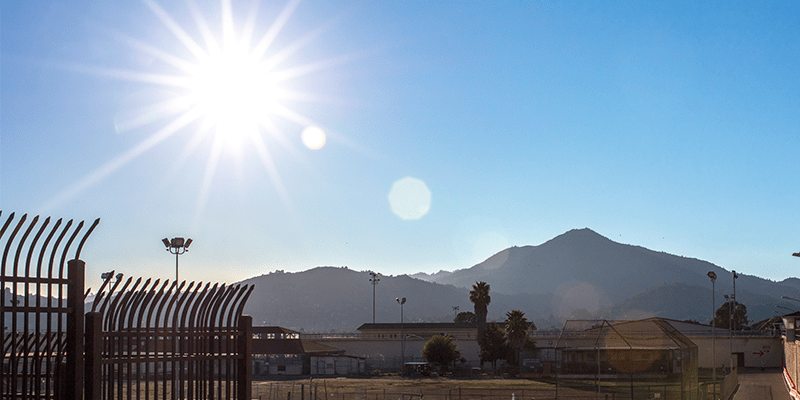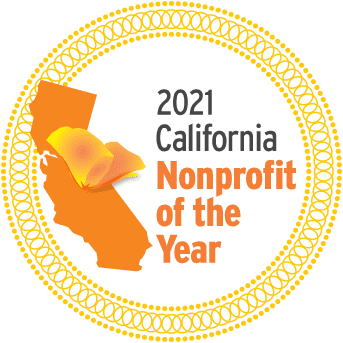The following is President Jody Lewen’s presentation at the Fifteenth Annual Shasha Seminar at Wesleyan University.
Opening Remarks: Notes on Engaging the Academy in Prison Work
Many thanks for this invitation.
I am above all interested in being of practical assistance – particularly to those here who are working to create in-prison programs. I was heartened by the many emails I received in advance of this conference, from people who were planning to be here and wanted to connect, to share about their work, and get advice.
To start out, for those reflecting on how they might get involved in this field, I encourage you to seek out not only information, but direct exposure. Go inside and teach. If you don’t teach, find other ways to connect with people inside, and to people coming out. Listen, and learn from them. Get as close as possible to people working inside – listen and learn from them. Ask them what they need. Help them fundraise. Educate yourself, your students, your teachers, your classmates, your colleagues about this field.
The premise of the following remarks is that the crisis of mass incarceration is above all a crisis of dehumanization; the challenges we face are related not just to specific political and economic systems, but to ideological and psychological systems that have grown up around them. Nowhere is this more apparent than in the world of higher education. I will explain this.
In order to solve any complex problem, we obviously need to think analytically not only about the given problem and its solutions, but about any obstacles that might impede those solutions. I would argue that one of the greatest hindrances to engaging the world of higher education in the struggle against mass incarceration – is its intense and complex preoccupation with status, or status anxiety.
Most of what I know about this issue I have experienced firsthand, or observed in the lives of graduate students who’ve worked with us at San Quentin. I would start by going back to when I first started becoming more emotionally invested in the work I was doing at San Quentin, and then the point when I began to realize I wanted to devote my life to it. I was in graduate school at the time, and more than halfway through my dissertation. I began to see some real wariness in some of the people around me about the choices I was about to make – especially among faculty friends, fellow grad students, and some family.
It is no surprise that some folks worried – rightfully – that this work might interfere with my finishing my dissertation. But the wariness extended beyond such practical concerns. Everyone, myself included, had initially assumed that this prison work would essentially be a kind of hobby – basically, something interesting and rewarding that I would do until I finished my degree, or perhaps something that I would continue to pursue on the side, once I got a “real job.”
Some people began to express concern about my professional and economic future: one colleague warned that if I ever tried to do this work full time, I would spend the rest of my life raising my own salary, and never enjoy the kind of financial security that a tenured job would provide.
But others also warned that if this work featured too prominently on my CV, and even more, if I did this work full-time after graduate school, rather than going directly into a conventional academic job, certain institutions might see this engagement in “social justice” or “non-profit” work as a sign of a lack of academic rigor, or lack of commitment, and dismiss me as a job candidate.
As those of us in academia well know, many people in our field do imagine academic scholarship as both opposed to and as intellectually superior to, engaging with the world outside of the academy. In addition, most people imagine working inside of a prison as the antithesis of working within the academy – even if one is teaching college classes inside. Most people cannot imagine serious intellectual life taking place inside of a prison at all. This is a critical, symptomatic issue.
Part of the issue here is that teaching in general is often devalued in relationship to theoretical research – and even more specifically, in relationship to publishing. But the cultural devaluation of teaching within the academy is both complicated and inconsistent. Teaching can be very status rich – as long as the students in question are considered especially smart – they need to be the “best and the brightest.” In other words, teaching students who already have a track record of academic success, is widely considered more professionally impressive, more intellectually challenging, and simply a more appropriate use of a smart academic’s time.
Let’s focus for a second on the concept of “exceptional” students: We all know that the number of people who end up at those “best and brightest” schools who went to low-performing, under-resourced schools, who grew up extremely poor, were raised by a single parent, who was perhaps an addict – or were raised by no parents, or even by no adults at all; or people who maybe had a learning disability that was never diagnosed or accommodated – the number of those people who end up at those “best and brightest” schools, is statistically probably close to zero.
So in other words, we know that our prevailing implicit definition of exceptional intelligence effectively excludes the vast majority of students in this country who are very poor, and/or come from extremely unstable backgrounds. And yet the idea that the students at those schools are not just simply “the best,” but are also the most desirable and prestigious to teach, goes largely unexamined.
My concern here then is not just with the injustice of unequal access; rather, it is with the fact that within the academy, academic achievement is generally accepted as a legitimate marker of intelligence, and that intelligence in this sense then strongly determines a person’s social status; and then the social status of the students, faculty, and institution as a whole just sort of ricochet off of each other – endlessly re/producing each other’s high status. This is what produces what we know as a Great University.
One important issue I just want to acknowledge here, is the idea of a great university. I am not suggesting either that this is an intrinsically morally bankrupt idea, or that it has no rational meaning. I personally am now more than ever invested in the phenomenon of these places – for me they’ve become beacons of sanity, guardians of civilization, facilitators of rational public discussion… The outstanding teaching, learning, research, etc. are all great. But what I want to point out is how the “great university” is always part of a larger web of social, cultural and political phenomena. It is a reflection of how we as a society have organized educational access, distributed resources, organized opportunity, and constructed identity. The university plays a critical role in the perpetuation of this complex social machinery, and is therefore implicated in all of these structures.
What disturbs me most about the whole elaborate construction of intelligence within the world of the university is how it has affected our ability to imagine human intellectual potential.
The educational scarcity and stratification that define our society have led us to believe not only that great intelligence is rare, but that it is most likely to occur in places of relative opulence. We associate intellectual brilliance with beautiful brick buildings and fancy athletic facilities. We associate intellect with wealth. For us as a society, this is a catastrophe.
I want to return here to the earlier point in my narrative when I talked about being warned of the risks of continuing to pursue the prison work, and in particular, the danger that I would be perceived as leaving academia, and thus be unable to return.
I had spent most of my academic life until that point studying language, identity, politics, and oppression, particularly focused on Europe in the first half of the 20th century. I had also lived in Germany for seven years (1987-1994), studying literature, history, and philosophy, immersed in that country’s profoundly vigilant post-fascism consciousness. So for me it felt indescribably ironic to find myself being cautioned – by intellectuals, no less – against engaging full-time directly with a dire humanitarian crisis. It would be wiser, I was told, to continue to merely theorize about the world in a highly specialized way, and to pursue social justice part-time, like a hobby.
In my darker moments I imagine the academy as the subject of a science fiction movie in which an entire community has been raised to believe that they have no immune system, and that if they go outside – if they leave the halls of their profession – it will mean instant death. If I had simply stayed on campus and read Foucault, rather than traipsing up and down the tiers of an actual cell block; or if I had stayed put and read Hannah Arendt, rather than trying to communicate with a correctional officer who was embodying her concept of the banality of evil; I would apparently have been on safer professional ground.
I remember one particular conversation during that first year of my running the program, in which I was trying to explain to a couple of faculty members in my department what I was finally coming to understand about the radical potential of developing a very strong college preparatory program inside a prison. There I was, standing at the cutting edge of radicalism in the academy, talking about the social and cultural capital contained in knowing how to write a grammatically correct sentence, to formulate a thesis, or to make an argument. One of the people I was talking to said to me, well, I guess you have to decide whether you want to be an academic or not.
I tried to explain that I had no intention of leaving academia, but that I was questioning what population I wanted to serve, and also what the greatest contribution was that I could make, both as an intellectual, and as a human being. Basically, I was trying to figure out, given my skills, how I could be of greatest service. The other person said, well, maybe you should be looking at composition jobs.
They were apparently unable to understand what I was saying, or to grasp the broader political issues I was talking about. The first one said, “well, that would certainly be a waste of your – [PAUSE] fluency.”
On one level this was a reference to my German language skills, but it was also pretty clearly a kind of coded reference to my intellect. For these individuals, thinking about “being of service,” or “having the greatest impact” within a community in dire need, wasn’t really an appropriate way for an academic to think. To them, I was a graduate student full of promise, who was threatening to squander her skills by committing a kind of professional academic suicide.
One last note: As a child, and later as a teenager, I was an avid observer of the sometimes brutal distribution of status among kids, and particularly of how the boundaries between the popular and the unpopular kids were defined and policed. I was always very interested in just how far out from the ledge of popularity one could lean, before the ground would start to crumble beneath one’s feet.
I was also interested in who got to define what or who was desirable or cool, and under what circumstances those definitions might shift or fade. I also was, and remain still, deeply interested in the power of the members of an in-group to change prevailing definitions, or to influence both who is excluded and how they’re treated.
In a strange way, as deeply as I love the academic community, and most of what it stands for, I sometimes feel like we’re still in high school. In my mind, one of the hallmarks of adolescence is that difficulty of distinguishing between something that might make us socially uncomfortable, or unpopular, and something that might actually destroy us. In a sense, one of the key messages I’d like to convey here today is that whatever challenges or adversity you may face in your professional life as you contemplate how you might be able to make a difference, I promise you that they are not going to kill you.
Leadership starts with noticing what you feel in your gut, deciding for yourself what you believe is right, and then holding your ground. Pay attention to default personal goals, internal pressure and expectations, or measures of success – whether internal or external – that lead you away from your deepest values and commitments. And above all: pay attention to attitudes and practices that implicitly or explicitly assign degrees of value to the lives of different human beings.
There is no greater challenge than of creating identification and empathy, and yet simply by speaking out, or acting – whether independently or as a group – you can have an extraordinary impact on the people and institutions around you. You can change attitudes, you can change your community, you can change the culture, and in the process, you can change lives.
Thank you.

